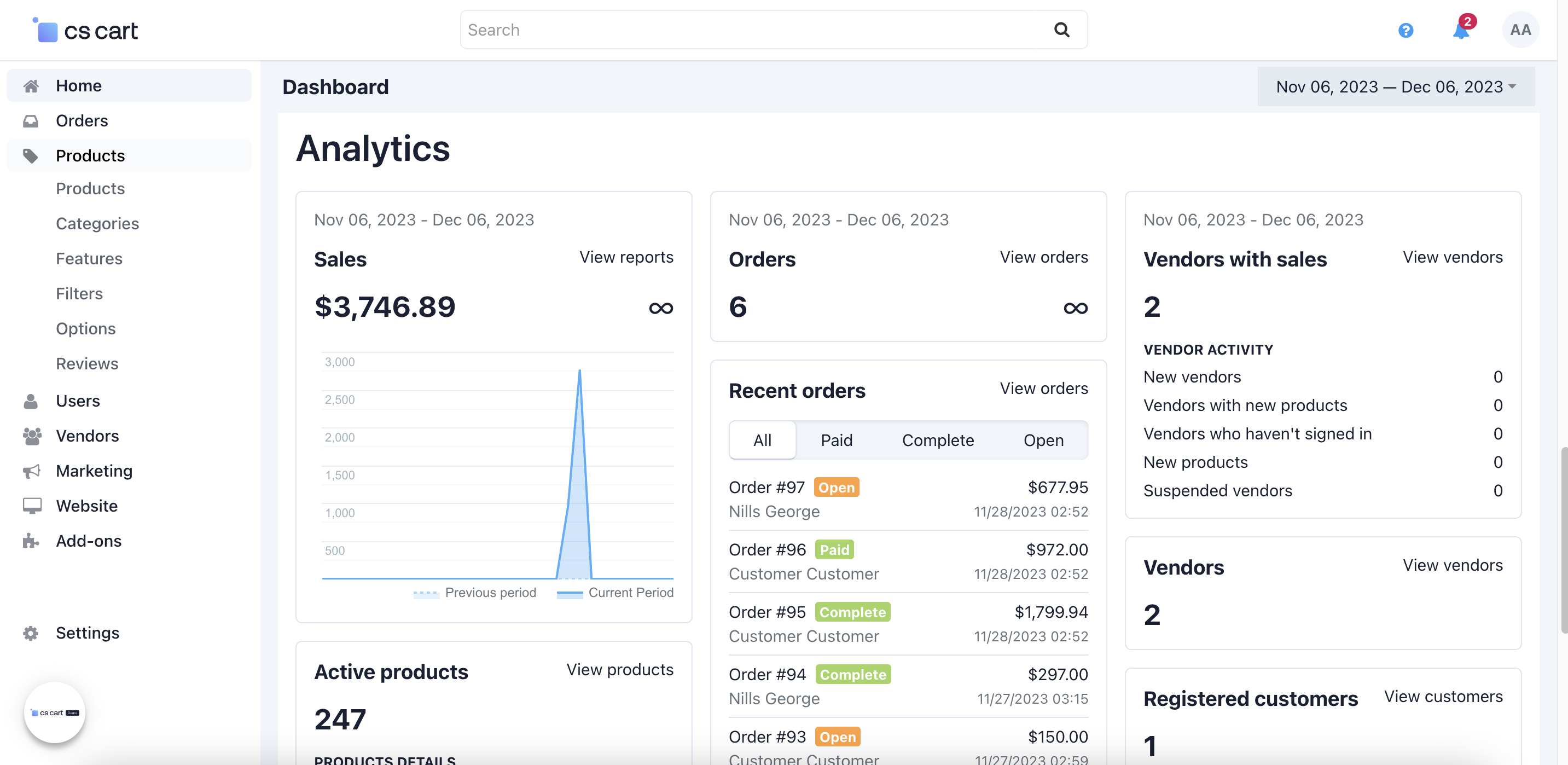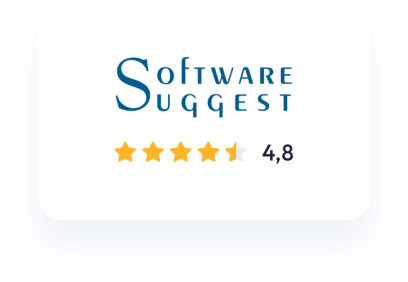
In the ever-evolving landscape of online commerce, the choice of the best ecommerce CMS is pivotal for businesses aspiring to build a robust digital presence. As we step into 2024, the quest for the best ecommerce CMS intensifies, with businesses seeking a platform that seamlessly integrates advanced functionality, user-friendly interfaces, and unparalleled customization options.
Join us on this journey through the digital maze as we unveil the contenders for the title of the best ecommerce CMS in 2024. Each platform is a powerhouse in its own right, offering unique features that elevate your online store. Beyond conventional choices, we'll explore the transformative potential of these best ecommerce CMS solutions, empowering you to make an informed decision for your digital storefront.
Let’s dive into the digital tides together and discover how the best ecommerce CMS options in 2024 can unlock the door to your online success.
Table of Contents
- What is an eCommerce CMS?
- Common Use Cases of an eCommerce CMS
- Essential Features of an eCommerce CMS
- Key Points to Consider When Choosing an eCommerce CMS
- The Ultimate Guide to Ecommerce Platforms in 2024: Top 13 eCommerce CMS
- Wrapping Up: Navigating the Ecommerce CMS Landscape in 2024
What is an eCommerce CMS?
An eCommerce Content Management System (CMS) is like the digital backbone of an online store, functioning as the nerve center that manages and organizes all the content on your eCommerce website. Think of it as the engine that powers the display, sale, and overall functionality of your products in the eCommerce platform.
Real-Life Comparison: The Store Manager
Imagine you own a physical store. The eCommerce CMS is like your store manager—it takes care of arranging products on shelves (webpages), updating price tags (product information), and handling transactions at the cash register (checkout process). Without an efficient store manager, chaos ensues, making it hard for customers to find what they need and for you to manage your business smoothly.

In the digital realm, an eCommerce CMS performs these crucial tasks, providing an intuitive platform for businesses to showcase products, manage inventory, process payments, and create a seamless shopping experience for customers.
Why It Matters:
- Organized Product Showcase: An eCommerce CMS ensures your products are displayed neatly, making it easy for customers to browse and find what they're looking for.
- Smooth Transaction Handling: Just like a reliable store manager ensures smooth transactions at the cash register, an eCommerce CMS facilitates secure and efficient online transactions.
- Content Control: It gives you control over the content on your eCommerce website, allowing you to update product details, images, and promotional content without technical expertise.
In essence, an eCommerce CMS is the behind-the-scenes hero that empowers businesses to establish and maintain a successful online store presence.
Common Use Cases of an eCommerce CMS
Launching an Online Store:
- Scenario: You're a brick-and-mortar business owner looking to expand your reach by establishing an online store.
- Role of the CMS: An eCommerce CMS facilitates the seamless transition to the digital realm, enabling you to showcase and sell your products in your ecommerce store to a global audience.
Managing Product Catalogs Efficiently:
- Scenario: Your business offers a wide range of products that frequently change.
- Role of the CMS: The eCommerce platform streamlines the process of managing product listings, ensuring your catalog is up-to-date with the latest offerings and changes on your ecommerce website.
Scaling for Growth:
- Scenario: Your business is experiencing rapid growth, and you need a CMS platform that can scale alongside your success.
- Role of the CMS: Scalability is a key strength of an eCommerce CMS, allowing you to expand your operations without compromising performance on your online store.
Customizing the Shopping Experience:
- Scenario: Your brand has a unique identity, and you want your online store to reflect that.
- Role of the CMS: With customization features, an eCommerce platform lets you tailor the look and feel of your site to align with your brand, creating a distinctive shopping experience for visitors to your ecommerce store.
Integrating Payment Gateways:
- Scenario: Secure and efficient payment processing is crucial for your business.
- Role of the CMS: An eCommerce CMS for online shops integrates seamlessly with various payment gateways, ensuring a smooth and secure transaction process for your customers on your ecommerce website.
Adapting to Trends and Technology:
- Scenario: The digital landscape is evolving, and you want to stay ahead of the curve.
- Role of the CMS: Regular updates and adaptability to emerging technologies make an eCommerce platform a future-proof solution for your online store, keeping you at the forefront of trends in the ecommerce cms platforms and content management system arena.
These use cases highlight the versatility of an eCommerce CMS for online stores in meeting the diverse needs of businesses in the ever-changing ecommerce website marketplace.
Essential Features of an eCommerce CMS
When assessing a Content Management System (CMS) for your eCommerce endeavors, considering a range of features is vital for a seamless and successful online presence. Explore the following key aspects to look for in an effective eCommerce solution:
User-Friendly Interface: A top-tier CMS platform prioritizes an intuitive and user-friendly interface, simplifying the management of your online stores. This ensures that even businesses new to eCommerce software can navigate and operate efficiently.
Robust Inventory Management: Efficiently handling and updating your product inventory is a critical aspect of any shopping cart software. Look for a solution that streamlines inventory management, making it easy to add, edit, and remove products for your online businesses.
Secure Payment Processing: The ability to integrate with various payment gateways ensures secure transactions for your customers. A reliable eCommerce platform for online businesses should support a variety of payment options, guaranteeing a secure and convenient checkout process.
Mobile Responsiveness: With an increasing number of users accessing online stores via mobile devices, it's essential for your chosen eCommerce CMS platform to provide a responsive design. This ensures a seamless shopping experience for visitors to your online stores across different devices.
Customization Capabilities: Tailoring the appearance of your online stores to align with your brand is crucial. Look for an eCommerce store CMS that offers extensive customization options, empowering you to create a unique and visually appealing storefront for your online businesses.
SEO Features: A high-quality eCommerce CMS platform includes built-in Search Engine Optimization (SEO) tools. This helps your online shop rank higher in search engine results, driving organic traffic and enhancing the visibility of your eCommerce websites.
Scalability: As your online businesses grow, your chosen CMS platform should grow with them. Seek a scalable solution, enabling you to expand your online stores without compromising performance or user experience.
Multichannel Selling: To broaden your reach, consider an eCommerce CMS solution that supports multichannel selling. This allows your online businesses to sell products not only on your eCommerce platforms but also on other platforms, expanding your market reach.
Security Measures: Security is paramount in online transactions. A trustworthy platform for online businesses implements robust security measures, safeguarding sensitive customer data and fostering trust in your online venture.
Analytics and Reporting: Access to detailed analytics and reporting tools is essential for monitoring the performance of your online shops. Choose eCommerce CMS software that provides insights into customer behavior, sales trends, and other crucial metrics for your eCommerce platforms.

Admin panel in CS-Cart
By considering these features, you can make an informed decision when selecting an eCommerce platform that aligns with the specific needs and goals of your online businesses.
Key Points to Consider When Choosing an eCommerce CMS
Selecting the right eCommerce Content Management System (CMS) is a pivotal decision for eCommervce store owners aiming to establish successful and efficient online businesses. Consider the following points to ensure that your chosen eCommerce CMS aligns with the specific needs of your online venture.
1. Evaluate Ecommerce Functionality
Assess the features that enhance the overall experience for both eCommerce store owners and customers. This includes intuitive product management, smooth checkout processes, and comprehensive order tracking.
2. Explore Various CMS Solutions
Different platforms offer unique benefits, so it's essential to find one that caters to the specific requirements of your online venture. Consider scalability, flexibility, and ease of use when evaluating options.
3. Efficient Ecommerce Content Management
The ability to efficiently organize and present content is crucial. Look for a CMS solution that simplifies content management, making it easy to update product information, images, and promotional content.
4. Secure Payment Transactions
Seamless and secure transactions are paramount. Evaluate the compatibility of CMS with various payment gateways, ensuring support for a range of payment options.
5. Overall CMS Capabilities
Consider the overall capabilities of different CMS scripts. A robust CMS should offer not only eCommerce features but also user-friendly interfaces, customization options, and a variety of tools to enhance your online business.
6. User-Friendly Ecommerce Website Builders
Many store owners prefer solutions that act as effective website builders. Look for platforms that provide easy-to-use website building tools, allowing you to create and customize your online business website without extensive technical expertise.
7. Tailor to Your Online Business
The chosen CMS should align with the nature and scale of your online business. Whether you are a small startup or a well-established enterprise, the CMS solution should be adaptable and scalable to accommodate the growth of your online venture.
8. Optimization for Search Engines
Ensure that the eCommerce CMS for online shop is optimized for search engines. A search engine-friendly platform improves the visibility of your eCommerce venture on search engine result pages, driving organic traffic to your online stores.

By carefully considering these key points, store owners can make an informed decision when choosing an eCommerce store platform that effectively supports and enhances the success of their online businesses.
The Ultimate Guide to Ecommerce Platforms in 2024: 13 of the Best Ecommerce CMS Solutions for Online Businesses
In the ever-evolving landscape of online businesses, selecting the right ecommerce content management system (CMS) is a critical decision for businesses seeking to establish a robust online presence. With a myriad of options available, each boasting unique features and capabilities, it's essential to navigate the sea of choices wisely. and choose the best ecommerce CMS. In this guide, we delve into the top 13 best eCommerce CMS platforms for 2024, exploring their strengths, features, and pricing to help you make an informed decision.
1. CS-Cart: Empowering Versatility
CS-Cart, an American-made ecommerce solution from the vibrant city of San Diego, stands out as a versatile multi-vendor marketplace and website builder. Offering self-hosted and open-source software with flexibility and customization, CS-Cart provides opportunities for online businesses to sculpt their own vision. Its free version, CS-Cart Free, adds significant value, making it a standout choice in the world of website builders.
Pricing: Starts with a free version.
2. Shopify: A SaaS Giant
Shopify, a renowned SaaS ecommerce platform, caters to startups and small businesses with its user-friendly interface and affordable pricing. With plans suitable for larger brands, Shopify offers 24/7 support, free store templates, and a separate POS system. However, transaction fees apply for using payment providers outside of Shopify.
Pricing: $29/month to $2000/month
3. BigCommerce: Power and Intuitiveness Combined
BigCommerce supports over 60,000 merchants, providing a powerful ecommerce platform with advanced SEO integration and flexible APIs. It caters to businesses of all sizes with built-in features and CMS capabilities, making it powerful for fast-scaling ecommerce businesses and intuitive for beginners.
Pricing: $29.95/month
4. WooCommerce: WordPress-Powered Ecommerce
WooCommerce, a popular open-source plugin for a WordPress website, transforms WordPress sites into dynamic online shops. Known for its vast selection of free extensions and themes, WooCommerce enables businesses to enhance their ecommerce features. However, caution is advised to prevent unnecessary complexity and performance impacts due to excessive plugin use.
Pricing: Free to download and install.
5. Squarespace: Elegant Simplicity
Squarespace, known for its elegance and simplicity, is the second-largest ecommerce solution in terms of market share. While primarily a content-first platform, Squarespace Commerce empowers users to build online stores seamlessly. It integrates hosting, domain registration, blogging, and an eCommerce store solution under one roof.
Price: $26/month
6. Wix: No-Code Appeal
Wix, a leading website building platform, offers a no-code approach, making it appealing for beginners and non-coders. While not strictly an ecommerce CMS, Wix allows users to add the commerce module if needed. With templates, built-in features, and a straightforward approach, Wix is an excellent option for those looking to get their online businesses off the ground quickly.
Pricing: $17/month
7. OpenCart: Open-Source Freedom
OpenCart, an open-source ecommerce builder, is free with basic features. It provides templates, a plugin marketplace, and integrates with numerous ecommerce software suppliers. OpenCart is a popular choice among newcomers with a small budget.
Pricing: Free with basic features.
8. Joomla: Extending Functionality
Joomla, an open-source content management platform, facilitates website building and content publication. While not inherently an ecommerce solution, Joomla offers free extensions that can turn a Joomla site into a functional online store.
Pricing: Free to download and install.
9. Adobe Commerce (Magento): Versatility on a Global Scale
Magento, an open-source CMS for ecommerce, supports over 260,000 ecommerce sites worldwide. Owned by Adobe, Magento offers rich functionality and a diverse extension marketplace. While suitable for all online businesses, it is often favored by larger businesses due to its extensive setup and pricing options.
Pricing: Magento Open Source (Free), Magento Commerce ($22,000–125,000/year)
10. Shift4Shop: Feature-Rich Commerce
Shift4Shop, formerly 3DCart, boasts a feature-rich website builder, efficient customer marketing tools, streamlined order management, and SEO support. Trusted by leading ecommerce businesses, it offers premium, customizable themes.
Pricing: Free for US residents. For other countries: Basic store ($29/month), Plus store ($79/month), Pro store ($229/month)
11. Volusion: Cloud-Based Commerce
Volusion, a cloud-based ecommerce platform, specializes in no-code web store building. With built-in inventory management, payment collection, and marketing features, Volusion is a good choice for mid-sized and larger businesses.
Pricing: From $29/month
12. HubSpot: Automation and Integration
HubSpot, a pioneering CMS and marketing automation platform, doesn't provide native ecommerce functionality. However, it seamlessly integrates with purpose-built ecommerce platforms like BigCommerce and Shopify. Connecting HubSpot to your ecommerce store aids in understanding customer behavior, automating marketing campaigns, and tracking revenue streams.
Pricing: From $25/month to $1,200/month
13. Drupal: Flexible Framework
Drupal, not specifically designed for ecommerce, can be combined with plugins and frameworks to enable ecommerce features. Offering incredible flexibility, Drupal Commerce provides a fully customizable frontend, especially when combined with the BigCommerce plugin.
Pricing: Free to download and install.
Choosing the right ecommerce CMS for online shop is a pivotal step in the success of your eCommerce venture. Consider the specific needs and scale of your operation, and weigh the features, flexibility, and pricing offered by these top platforms. Whether you're a startup or an established enterprise, the right ecommerce CMS for online shop can be the key to unlocking your venture's full potential.

Online store built with CS-Cart
Wrapping Up: Navigating the Ecommerce CMS Landscape in 2024
In the fast-paced realm of online commerce, where every click and conversion matters, choosing the right web shop CMS is akin to selecting the heart of your digital enterprise. As we've explored the top 13 ecommerce platforms for 2024, each with its unique strengths and features, the landscape is vast, catering to the diverse needs of businesses both big and small.
Amidst the array of choices, CS-Cart emerges as one of the best ecommerce cms. It's one of the most versatile, powerful, and customizable platforms. Plus, it's open source ecommerce platform. Whether you envision a multi-vendor marketplace or seek a robust website builder, CS-Cart stands out for its flexibility and customization options. Its free version, CS-Cart Free, adds significant value, making it a standout choice in the world of website builders.
To experience firsthand the versatility and power of CS-Cart, we invite you to download CS-Cart and try it out on your own server. Witness how CS-Cart can transform your ecommerce site into a dynamic and customizable digital storefront. Remember, the success of your ecommerce site lies not just in the products you sell but in the platform that powers your digital storefront.
As you embark on this journey, consider the keywords that underscore the foundations of a successful ecommerce venture: seamless ecommerce functionality, user-friendly interfaces, robust content management, and the ability to navigate the extensive backend code customizability. Whether you are running a WordPress site or diving into the world of SAAS ecommerce platforms, the options are vast, and the right fit awaits.
With the insights gained from this guide, and with the best ecommerce cms for your business, make an informed decision that propels your online business towards growth, adaptability, and sustained success in the dynamic landscape of the ecommerce industry.




